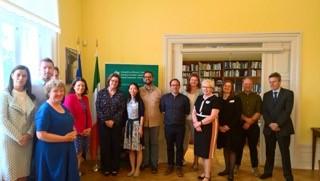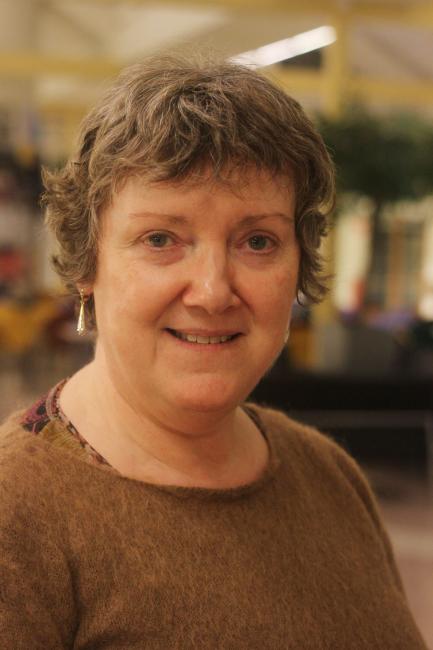Europe facing great need for developing future services in ehealth
2017-07-05Bridget Kane, associate professor of Information Systems, spent three days in Copenhagen on a trip to Healthcare Denmark, and the European Headquarters of the World Health Organisation.
The field trip was organised through the Centre for Health Policy and Management at Trinity College Dublin. The group was comprised of a small group of alumni of the MSc in Healthcare Management programme, who work in senior roles in the Irish Health service, and a couple of academics.
- I was invited to join the group as I have a demonstrated interest in healthcare, and I was recently invited as a guest speaker to talk to the MSc healthcare management students about the Swedish healthcare system. I also worked in the Centre for Health Policy and Management on a post-doctoral research project a few years ago. I worked with an analysis of the emergency services in Ireland, with particular focus on the distribution of resources, and equity in the distribution of those resources.
The group visited DTU@Business, in Kollegiebakken and had a tour of DTU Skylab followed by talks about DTU Business and their focus towards the healthcare sector, and some case studies on innovation projects. They also visited the IT University of Copenhagen and were introduced to the work of Monsenso, an SME developing and delivering mobile technology for mental health. Staff from Monsenso reviewed the research being done in the field and the application of the Monsenso solutions in clinical settings.
The second day was spent at the Copenhagen Centre for Cancer and Health at Nørre Allé, Copenhagen.They had presentations from staff about the organisation and the rehabilitation services it provides at the centre. There was also a presentation about their project on activities aimed at men, and about inequalities in cancer rehabilitation on Denmark.
At the Copenhagen Emergency Medical Services HQ the visit included a presentation about the work that they do, including the social ambulance.
- We had the chance to tour the facility and talk to the staff on the front line who were taking emergency calls and dispatching services, depending on the level of emergency. A couple of the staff who work in the Irish emergency services, accompanied the emergency teams that evening in city ambulances, says Bridget Kane.
The final day of the visit was spent at the WHO European Headquarters, where presentations from senior personnel were held about the work of WHO and policy on health. The European health information initiative is committed to improving the evidence on which policy is based, and ultimately to creating a single health information system for Europe. Following very interesting presentations on policy and the role of ehealth we were given a tour of the UN City building in which the WHO European headquarters are housed.
Finally, after the group was entertained by the Irish Ambassador, Cliona Manahan, in the Irish Embassy in Copenhagen.
- The importance of technology and health was a recurring theme throughout the visit to Copenhagen. The need to support innovation and the development of future services in ehealth and mhealth was emphasised. This trip was also a great opportunity to meet potential research collaborators in Denmark, and Ireland. Health information systems are under developed in Ireland and e-health and m-health are high on the European and WHO agenda for the coming years. Even for those countries who already have fairly well developed systems, such as Denmark and Sweden, there is a recognised need for improvement, development and innovation. We can anticipate that the topic of health information systems will be an important topic of concern in future European research, concludes Bridget Kane.




